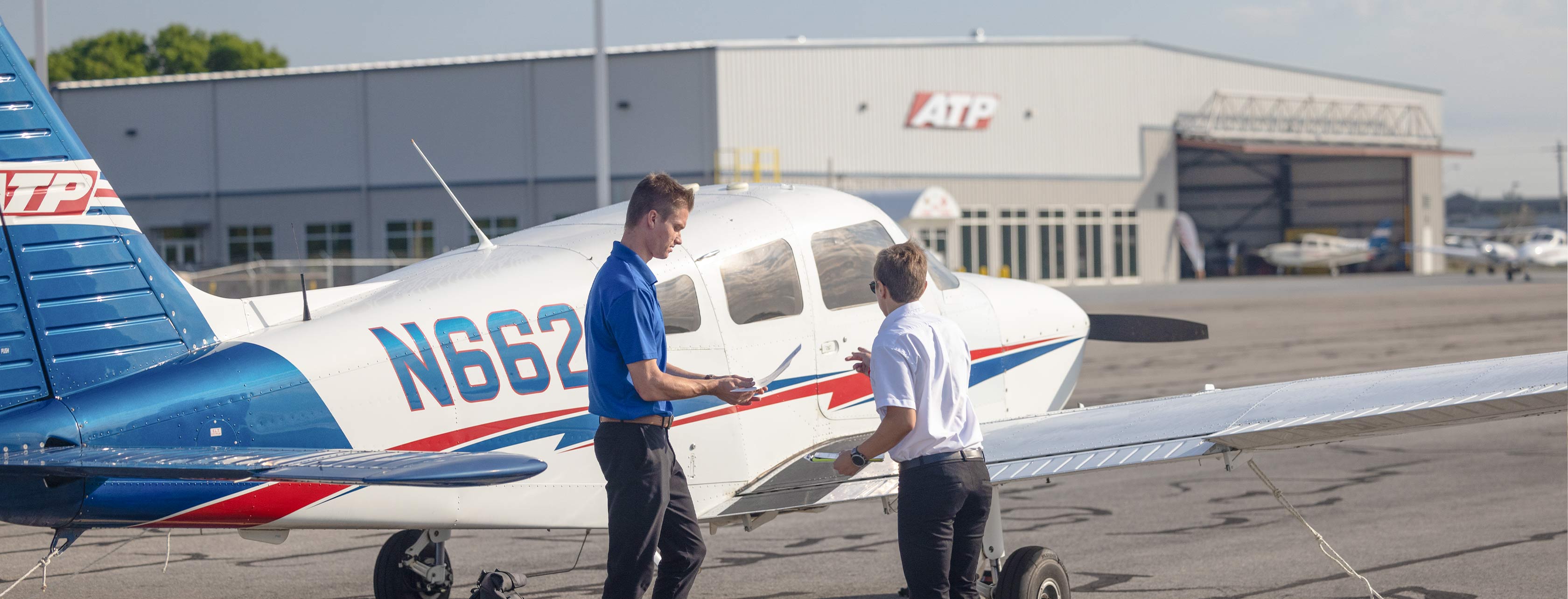What Are the Eligibility Requirements for a Student Pilot Certificate?
Get started with your flight training today with a FREE no-obligation Introductory Flight (valued at $) when you apply for a loan and you are qualified by an Admissions Representative! Learn How to Apply »
To be eligible you must be at least 16 years of age (or 14 years of age if you intend to operate a glider or balloon), and be able to read, speak, write, and understand the English language.
Student Pilot Certificate Requirements
To earn a student pilot certificate, a pilot must:
- Be at least 16 years of age for other than the operation of a glider or balloon
- Be at least 14 years of age for the operation of a glider or balloon
- Read, speak, write and understand the English language
Reference 14 CFR §61.83 for a complete listing of all requirements.
How Do I Apply for a Student Pilot Certificate?
- Apply With the FAA: Complete the student pilot application through the Integrated Airman Certification and Rating Application (IACRA) website.
- Submit Your Application: While there are numerous ways to submit the application, the most common is to submit the application to a certified flight instructor. The instructor will process the application and submit the required documents to the Airmen Certification Branch for review.
- Receive Your Certificate: You can expect to receive your student pilot certificate from the Federal Aviation Administration (FAA) within a few weeks. The FAA will mail you a plastic certificate that looks nearly identical to the certificate you will receive once you become a private pilot. The certificate will indicate that you are a “Student Pilot” and will allow you to solo once you complete the required training and demonstrate proficiency in the necessary skills to your instructor.
What Are the Limitations of a Student Pilot Certificate?
As previously mentioned, the student pilot certificate, while easy to obtain, is a necessary item that allows you to complete the required solo flight time for your private pilot certificate. Although it is considered an actual pilot certificate, there are specific limitations student pilots must adhere to.
General Limitations
A student pilot may not act as pilot in command of an aircraft:
- That is carrying a passenger
- That is carrying property for compensation or hire
- For compensation or hire
- With a flight or surface visibility of less than 3 statute miles during daylight hours or 5 statute miles at night
- When the flight cannot be made with visual reference to the surface
- In a manner contrary to any limitations placed in the pilot's logbook by an authorized instructor
Reference 14 CFR §61.89 for a complete listing of all limitations.
Student Pilot Certificate Medical Requirements
For most pilot certificates you will also need to obtain and hold an FAA Medical Certificate prior to flying solo. In order to exercise the privileges of a student pilot license, you must hold, at a minimum, a third-class medical certificate, which can be obtained through an aeromedical examiner (AME). Certificates must be renewed periodically. If you are under the age of 40, this is every 60 months. While if you are over the age of 40, you must renew your medical cerficate every 24 months.
Once the Student Pilot Certificate, FAA Medical Certificate, required training, and proficiency have been obtained, you will be allowed to partake in one of the most memorable moments you’re likely to have in aviation: flying an aircraft completely alone while your authorized instructor supervises from the ground.
Request More Information »
